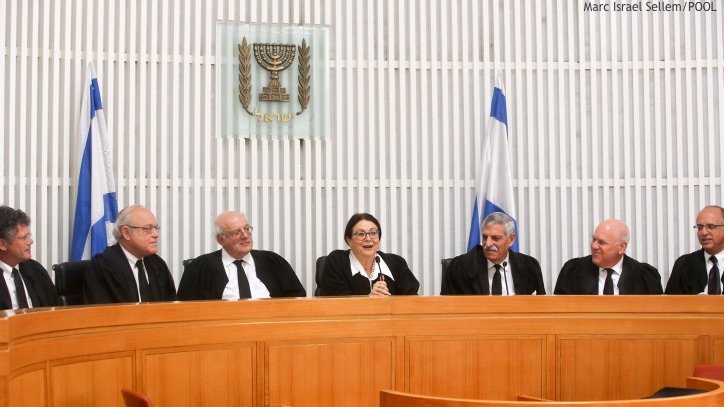The Jewish character of the State of Israel has been under threat from the moment the British government ratified the 1917 Balfour Declaration. After the idea of a Jewish state was accepted by the international community in 1922 and again in 1947, the legal aspect of this notion was not challenged. Rather, those who refused to accept Israel as a Jewish state turned either to war and terror or, in the West, to a “war of ideas.”
Israel as a Jewish state is contested on more than one front, and arguably the most important one is the legal front. The legal systems of Western democracies, which today place an emphasis on the rights of the individual over the rights of the community/state, have been exploited to this end. The use of the legal system to force social, cultural and political change that at times contradicts the very idea of democracy has been appropriately termed “lawfare.”
Lawfare, as defined by the Lawfare Project, is the “use of law as a weapon of war.” It is “the abuse of [Israeli] laws and judicial systems to achieve strategic military or political ends.” It is “the negative manipulation of international and national human rights laws to accomplish purposes other than, or contrary to, those for which they were originally enacted.”
It is hard to tell when exactly the Israel Supreme Court became susceptible, and many here think participant, to lawfare. Experts would put their finger on two event: the “constitutional revolution” of former Chief Justice Aharon Barak, who in 1993 ruled that the Supreme Court can cancel any law it thinks contradicts basic rights anchored in existing laws; and the right of anyone to stand before the Supreme Court, a 2003 decision that opened the institutes doors to just about everyone, including Palestinians claiming ill-treatment at the hands of the Israeli government.
Justice Minister Ayelet Shaked took upon herself to return the traditional balance of power between the legislative and the judiciary. The present government believes that the “constitutional revolution” has tipped the balance in favor of liberal agendas aimed at undermining the very idea of a Jewish state. And this, in turn, has caused a majority of Israelis to become ever more resentful of the Supreme Court.
In her latest speech on September 4, Shaked addressed this problem in no uncertain terms. Quoting former Supreme Court judges, including Barak himself, Shaked criticized the Supreme Court’s despotic tendencies that “blurs the sovereignty of the people.” Quoting Barak, who said that “as jurists … we are the architects of social change,” Shaked said that the Supreme Court has turned from an organ “responsible for interpreting the law to one responsible for policy.” Shaked went on: “Allowing this process to continue will end the role of the people … in our democratic system. From now on, norms will be decided by the people” represented in the parliament. “I am not going to forfeit the role of the people, nor will I forfeit the role of its representatives.”
In response, former Chief Justice Dorit Beinisch, speaking on Israel Radio, said that “there is a misunderstanding about what democracy is. Have we become a people’s democracy that turned to dictatorship? The hallmark of democracy,” she continued, “is not the people’s rule.” Shaked’s speech, she concluded is demagogic and a threat to our democracy.
Asking Simcha Rothman, Legal Advisor for Mehsilut (The Israeli Movement for Governability and Democracy), to comment on this latest affair, he said that “Beinisch’s response to Shaked’s speech shows once again that Supreme Court judges still think that the people of Israel can’t be trusted, therefore it is the duty of the Supreme Court, not the parliament that represents the people, to protect democracy, threatened constantly by the misguided masses. But even more worrying is that Shaked reminds Beinisch of the despotic leaders of people’s democracy, like that of Pol Pot and Kampuchea and Mengistu and Ethiopia. This means that she lives in an alternative reality of her own. If this is what she thinks about the people and about Justice Minister Shaked, she should have never become judge, let alone Chief Justice of the Supreme Court. If these are our judges, maybe it is time to reset our Supreme Court altogether.”












